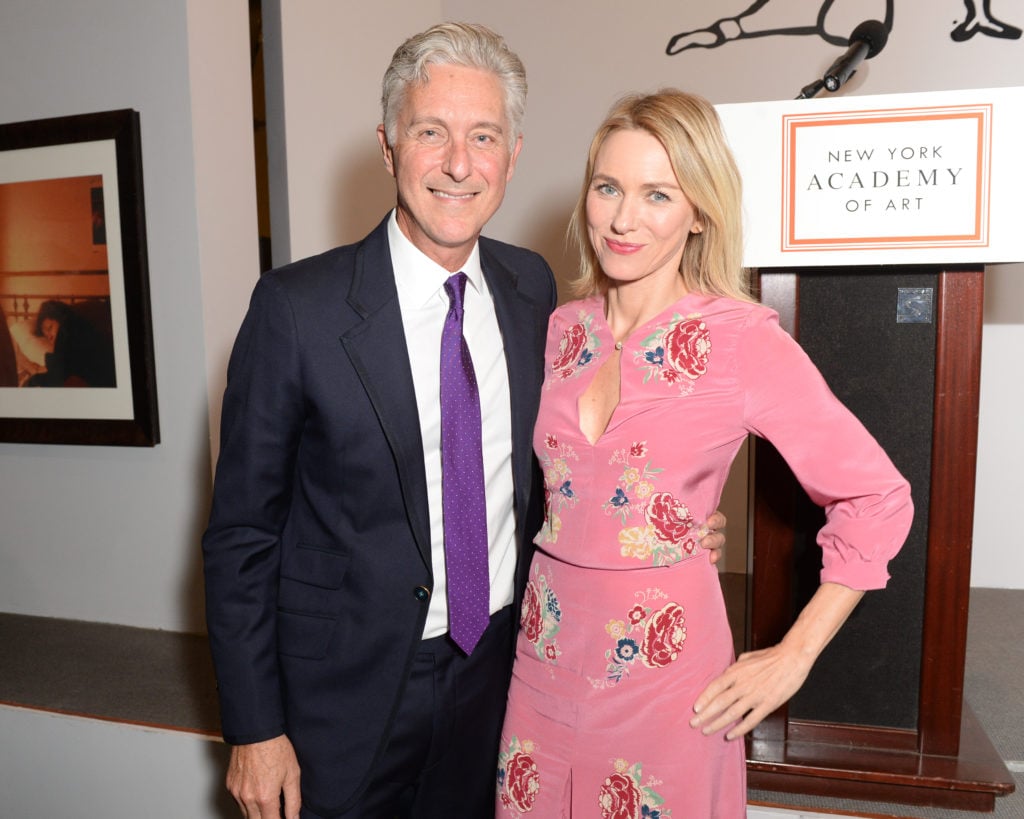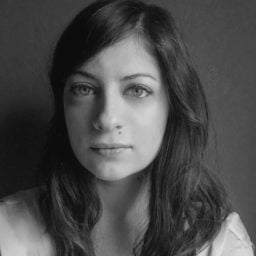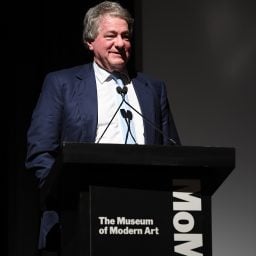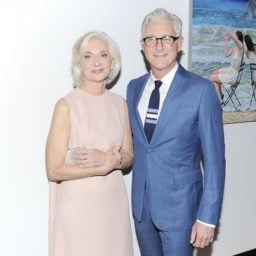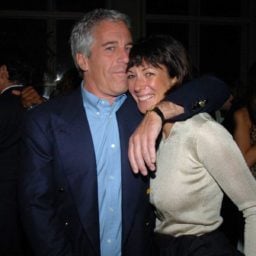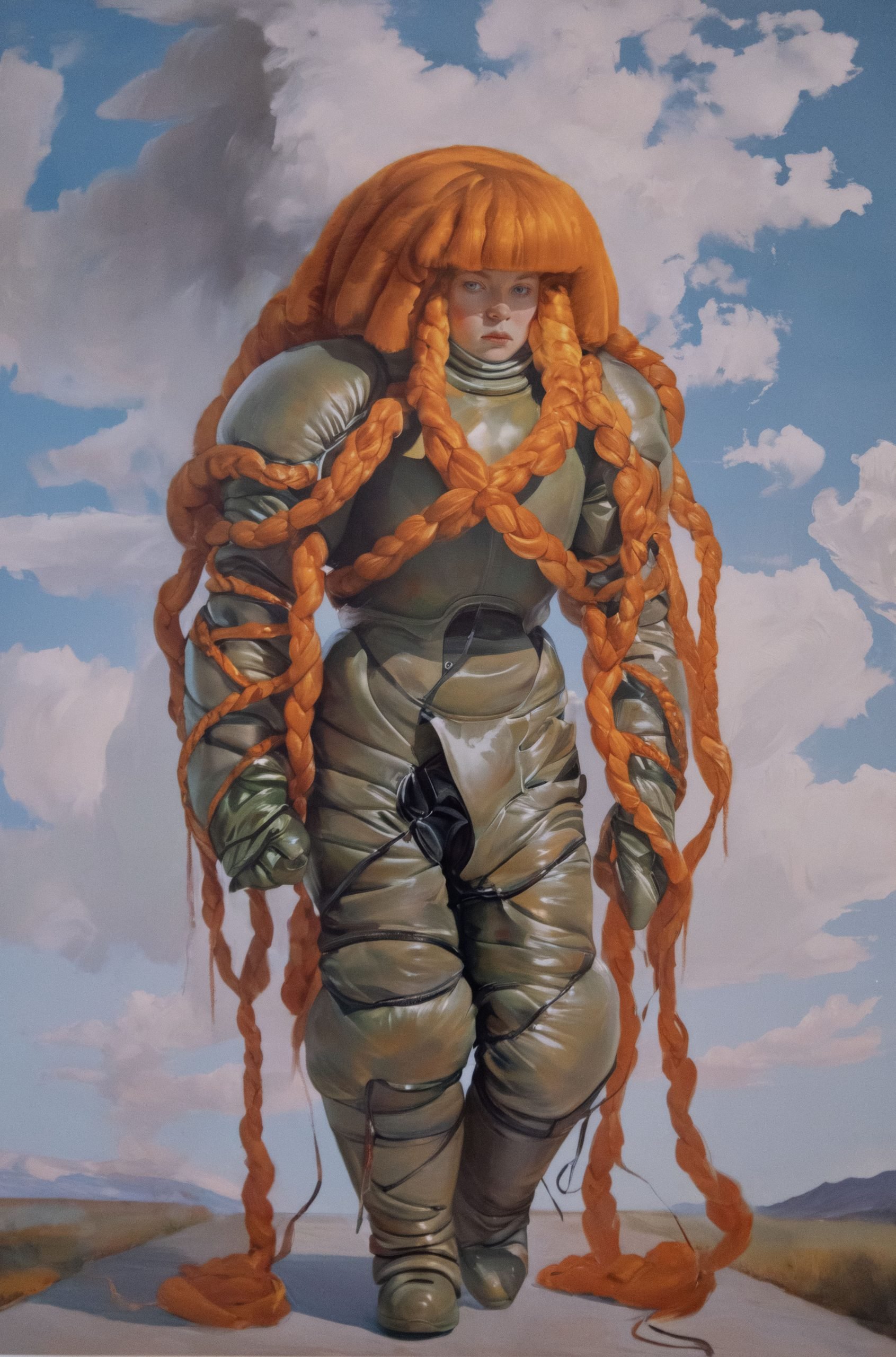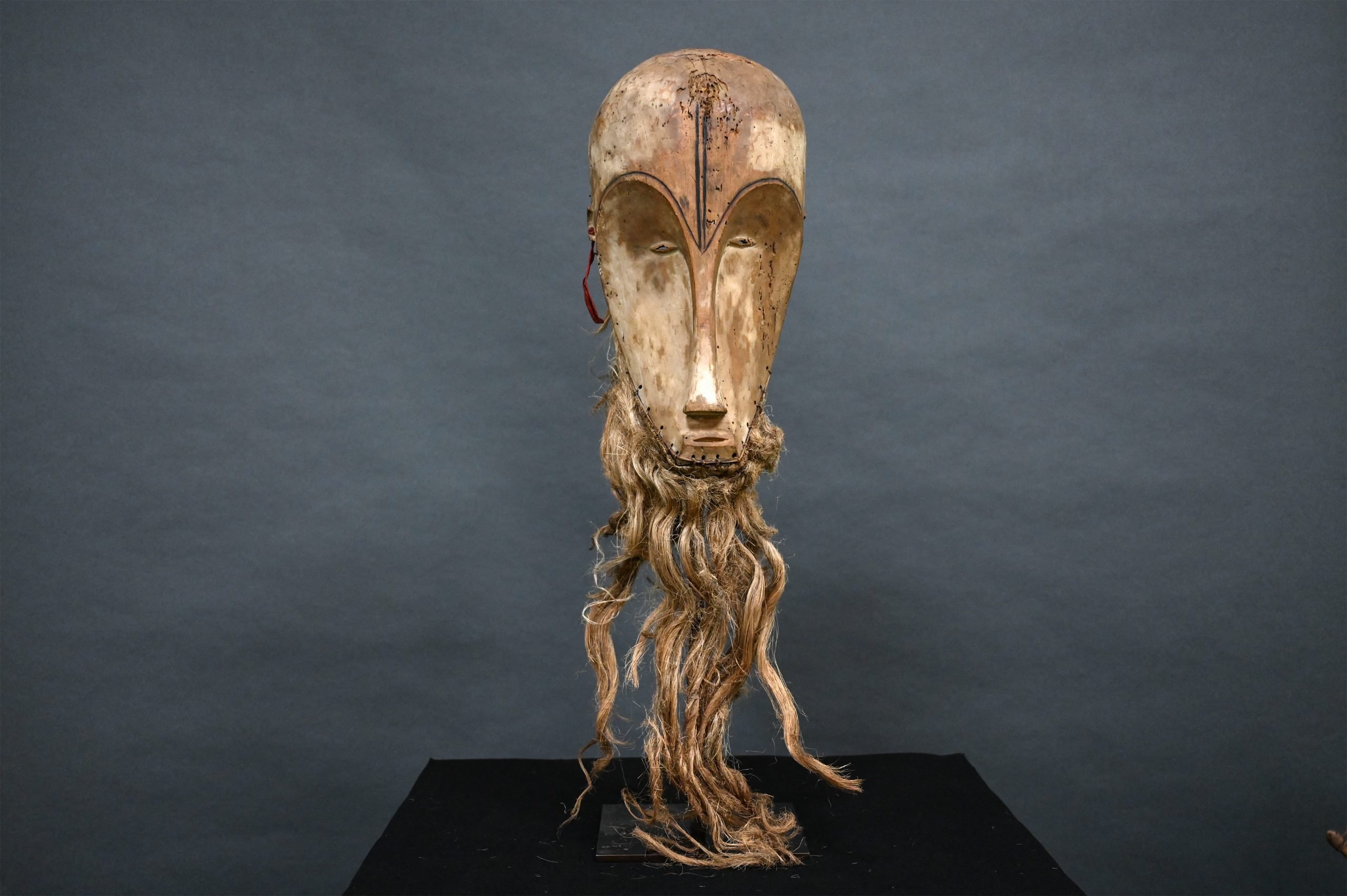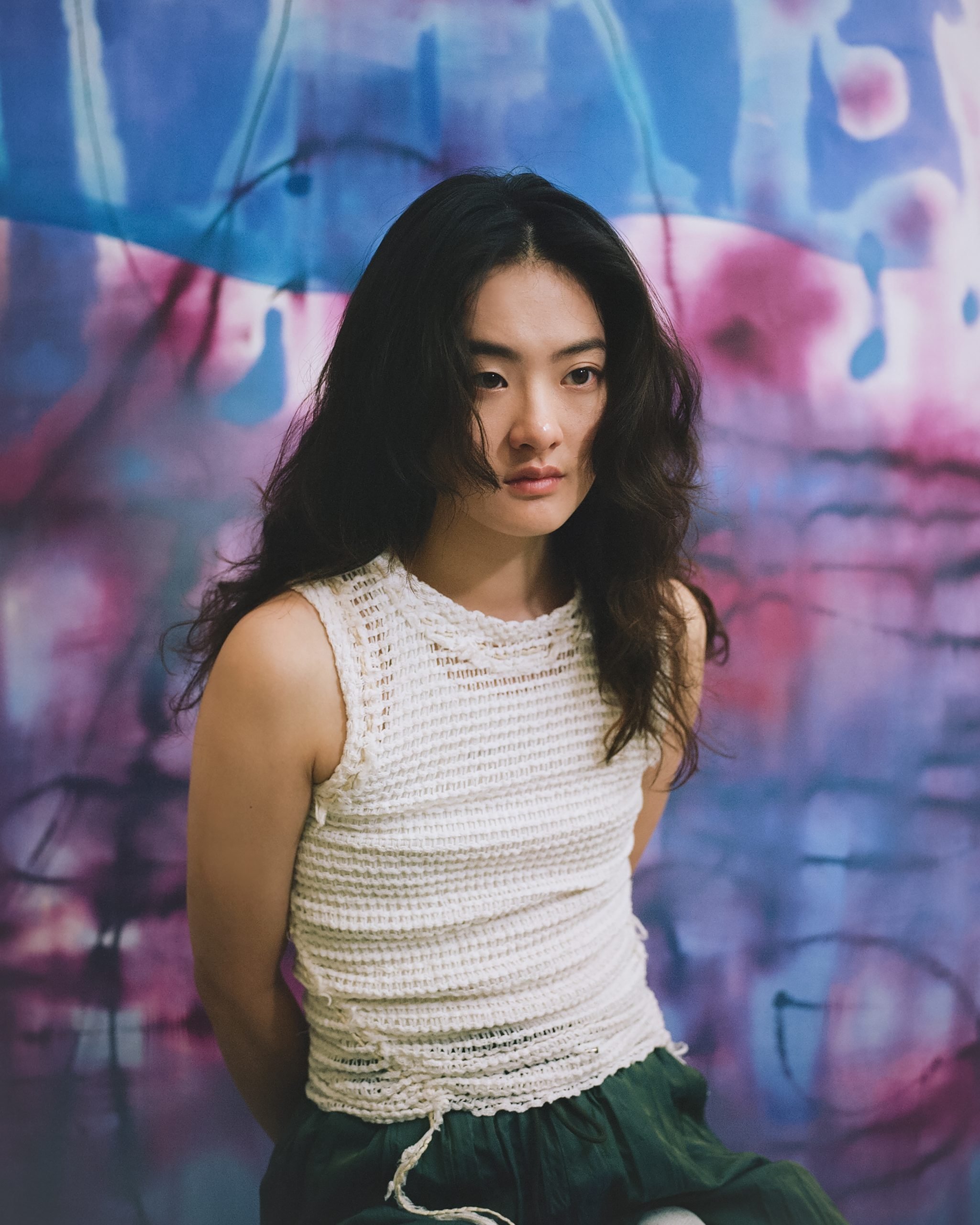The New York Academy of Art has been in turmoil since its alumna Maria Farmer, an alleged victim of Jeffrey Epstein, accused the school of enabling the late sex offender’s abuse. In response, the academy hired a law firm to investigate Farmer’s claims. But instead of helping “to close the book on this issue,” as academy president David Kratz had said he hoped when it was first released, aspects of the investigation have been characterized by students and alumni as victim-blaming and biased, only adding fuel to the fire.
On July 30, three members of the academy’s board—Ippolita Rostagno, Alina Lundry, and Valerie Cooper—resigned en masse. Two weeks earlier, the actress Naomi Watts also resigned from the board. Their decisions were a result of the school’s handling of Farmer’s allegations, according to an alum who has knowledge of the situation and asked to remain anonymous. The former board members could not be reached for comment.
The remaining board members did not comment on the resignations, but the executive committee issued a “profound apology” yesterday to Farmer and other alumni who are “upset and angry” with its response, according to a letter it wrote to alumni. The board is also making a $30,000 donation—the amount Epstein gave in scholarship support to the academy in 2014—to a charity for victims of sexual assault.
Farmer has previously told Artnet News that Eileen Guggenheim, who is chair of the academy’s board, introduced her to Epstein and his alleged co-conspirator Ghislaine Maxwell at her thesis show in 1995 and encouraged her to sell them her work at a discounted price because of the financial support Epstein had offered to the academy. (Epstein served on the school’s board from 1987 to 1994.)
The following summer, Farmer said that Guggenheim invited her and other alumnae on an uncomfortable visit to Epstein’s ranch in New Mexico. Guggenheim initially denied that either encounter took place, but later admitted to visiting the ranch after another former student approached Artnet News to corroborate Farmer’s story. Guggenheim maintains that she never introduced Farmer to Epstein at the thesis show nor was she involved in the sale of her work.

Artist and New York Academy of Art board member Eric Fischl with Maria Farmer in Santa Fe in 1995. Courtesy of Maria Farmer.
The law firm’s investigation concluded that Farmer’s story contained discrepancies and that Guggenheim should be exonerated. As a result, the board issued a unanimous vote of confidence in Guggenheim’s leadership several weeks before the resignations.
After the report’s completion, however, many students and alumni were dismayed with what they perceived as bias and sexist language in the report, while some former trustees felt uncomfortable with its contents and reception, sources said. The academy initially stated that the board commissioned the report, but sources said that some trustees were not even aware of it until after its findings were delivered. Asked about the discrepancy, the academy clarified that the school and its president, David Kratz, commissioned the investigation.
An open letter, signed by 96 current students and alumni, aims “to make known our shame to be associated with the actions of NYAA leadership and their legal team,” the letter says. (The letter and its signatories were reviewed by Artnet News, but its authors declined to release the names publicly.) The school declined to provide the letter’s signatories with the full 30-page report, so their letter is based off the law firm’s five-page summary as well as related press coverage.
The letter notes the potential conflict of interest in the fact that the law firm commissioned to conduct the investigation previously represented Guggenheim following the release of a petition calling for her ouster this spring. It also criticizes the report’s suggestion that Maria Farmer was responsible for the abuse that her younger sister Annie Farmer also allegedly endured at the hands of Epstein. The report claimed that Maria ignored “red flags” in Epstein’s behavior “which would have suggested to a reasonable person that introducing her 15-year-old sister to Epstein might end badly.” (The letter calls this a “double standard” that could have just as easily applied to Guggenheim.)
“This victim-blaming rhetoric exemplifies an alarming dissonance with the cultural moment,” the letter reads. Its authors add:
“To our knowledge, Farmer has taken no legal action against the school or Guggenheim. Nevertheless, the NYAA Board of Trustees commissioned a purportedly independent investigation of Farmer’s assertions. In a letter to the press, the board explained that the NYAA ‘took measures to investigate Maria Farmer’s allegations in order to assess whether they necessitated further action.” Unfortunately, the summary of this investigation seems to indicate a singular focus on discrediting Farmer’s testimony rather than delving into Epstein’s involvement with the NYAA’s board, his longtime financial ties to the school, or his personal relationship to Guggenheim.
The letter went on to urge the academy to add alumni positions to the board “as a way to implement increased transparency, student safety, and a bridge between those who make decisions and those affected by them.”
It also asked the academy to more broadly reconsider the nature of the relationship between students and donors. Echoing Farmer’s complaint that she felt pressure to ingratiate herself to Epstein, the signatories say that they, too, have felt instrumentalized in the school’s fundraising efforts, feeling compelled, for example, to produce work for collectors at the Tribeca Ball fundraiser when they could have devoted that time to their thesis projects.
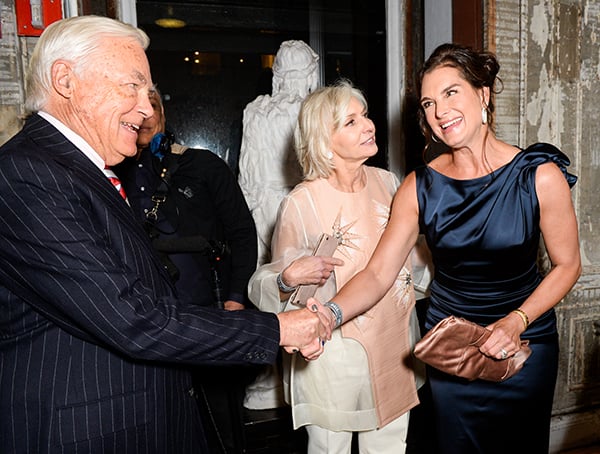
Eileen Guggenheim and Brooke Shields at the New York Academy of Art’s Tribeca Ball. Photo: BFA.
“At the crux of the school’s fundraising efforts is a reliance on students, faculty, and administration to ingratiate themselves to board members, collectors, and donors,” the letter says—an attitude that “puts undue pressure on students to perform in precarious or predatory situations.”
Yesterday, the board’s executive committee responded with a letter of its own, acknowledging the negative impact of the investigation. “Some of the conclusions in the resulting report blamed Ms. Farmer and we regret they were included,” the letter reads. “We will direct our law firm to strike from the final report any conclusion that could be perceived as victim-blaming.”
This letter follows one that Guggenheim herself sent on August 1, which was shown to Artnet News, expressing similar sentiments. “Let me be clear, I completely sympathize with the pain that Maria and her family have gone through,” Guggenheim wrote. “Victims of sexual assault suffer lifelong trauma; my heart goes out to Maria, her sister, and to all victims. I am deeply sorry if the report has caused further pain.”
The board letter noted that the academy plans to take several concrete steps to address the issues raised, including inviting the president of the Alumni Association of the New York Academy of Art to join the board and hosting special meetings that will be open to the broader community. It is also forming a communications committee comprised of board members, students, and administrative staff to “facilitate ongoing dialogues to resolve any issues that may arise.”
To address the culture surrounding donor-student relations, the letter adds that “the administration has committed to prioritizing new strategies for fundraising in addition to special events.”
The changes are intended, the letter says, “to bring more diversity and inclusion to the board and the school and to ensure students never feel as though they are required to interact with donors and always feel safe.”
Follow Artnet News on Facebook:
Want to stay ahead of the art world? Subscribe to our newsletter to get the breaking news, eye-opening interviews, and incisive critical takes that drive the conversation forward.
